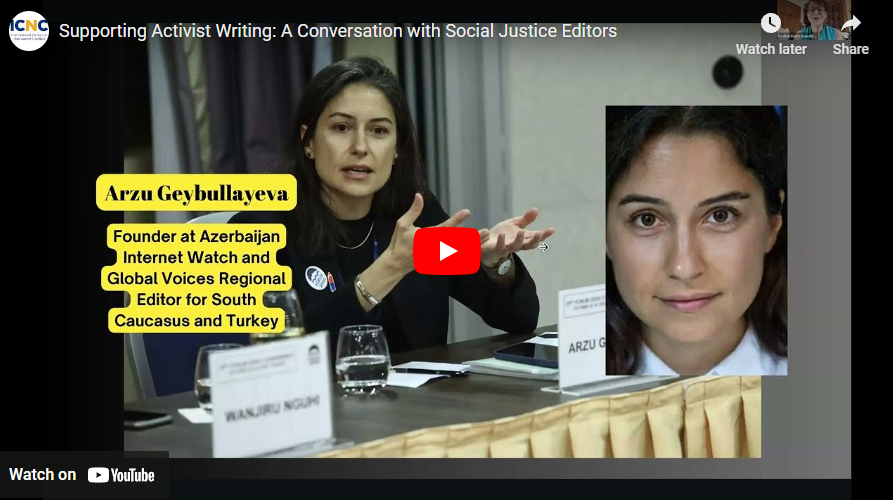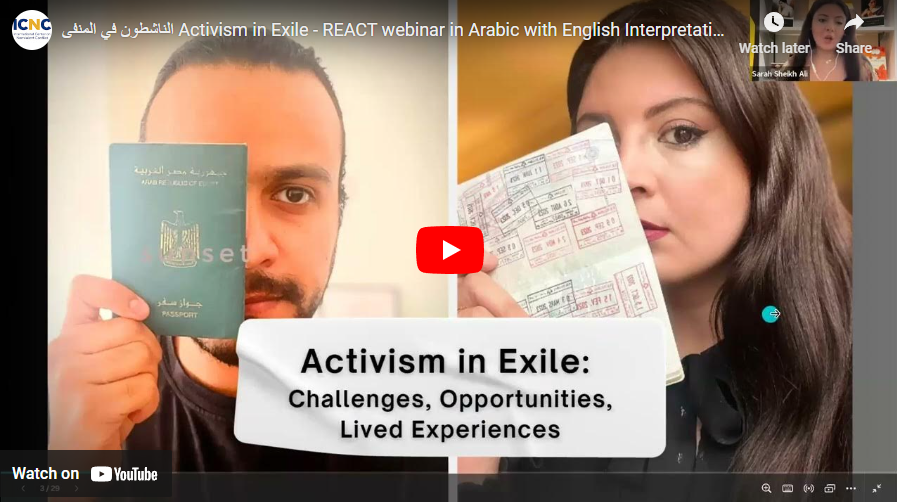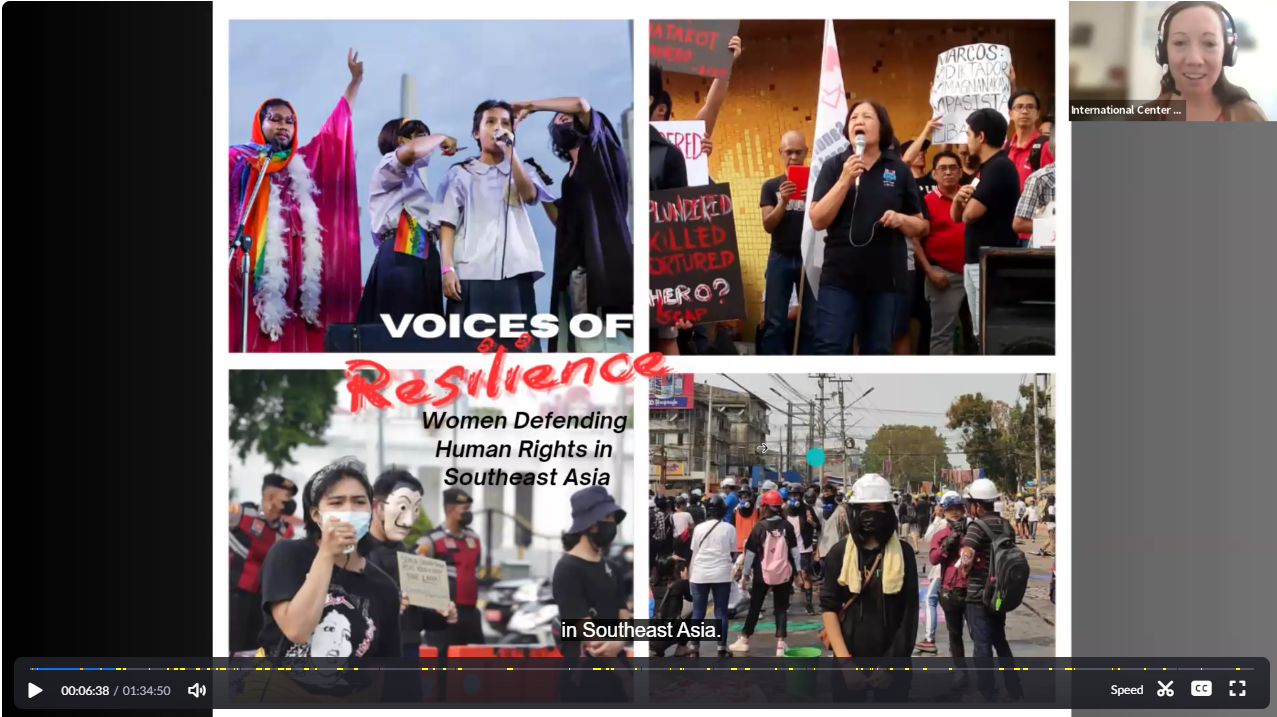Minds of the Movement
An ICNC blog on the people and power of civil resistance
by Amber FrenchNovember 26, 2024
The REACT (Research-in-Action) series powered by ActionAid Denmark is all about how ordinary people use their human agency to nonviolently struggle and achieve rights, justice and freedom. This series chronicles activist struggles and movement moments that made all the difference. Stories, rich with analysis, experiences, ideas and theories, are as diverse and rich as their authors, who are activists and human rights defenders based in all world regions. Writers are part of dozens of nonviolent movements and speak collectively dozens of languages.
NGO 'storytelling' typically focuses on the more personal aspects of activism, often from a Western frame of international development. This approach is of course valuable in many ways. Engaging in activism is a very intense personal experience, one that often includes dedication, strength, resilience, pain and loss. Storytelling helps humanize people—activists—who oppressors do everything in their power to dehumanize. Telling their own 'stories' to an international readership helps activists build bridges to reinforce conscientious external support. And in my experience, many human rights defenders want to tell their stories.
Yet the predominant storytelling practices only harness part of what activist writing and activist-writers are capable of. More than an NGO communication tool, writing is both a process and a product, and only when it is activist-led, educational and engaged can its power be fully realized. "Activist-led" means making space for activist-writers to take on editorial responsibilities themselves (like our guest editorship model, see below). "Educational" means encouraging activist-writers to analyze their experiences from a strategic perspective and distill takeaways for other activists. "Engaged" means leveraging writing for international solidarity with activists—it means giving back.
Grassroots writing
Activists accomplish complex, brave, outstanding, smartly calculated tasks at their own peril. Having time to analyze key moments in their activism through writing is out of the question for many movement actors (it's hard enough to find time to write even when you're not an activist). And when activists themselves cannot appreciate or build on their own experiences, others facing similar challenges cannot learn from them either.
Yet writing, even when it isn't explicitly designed to be activism, still exercises human agency. And human agency is additive, multi-directional. Peer learning and knowledge exchange—between activists of the same or different movements, and also between movements, researchers and the policy community—are fundamental to movement success. Writing is a practice that encourages activist reflection, analysis, documentation and sharing, and as such, it offers both introspective and outward-facing benefits. Not to mention it lowers the threshold for movement supporters to grow their activist community and movement solidarity.
In short, a bottom-up approach to writing helps us all realize our human potential to fight for human rights and democracy, together, activist or not.
Putting pen to paper
Coming back to our mission statement, how people use their agency to nonviolently advance human rights: it is naturally very difficult for activist-writers to focus on the how when they are facing intense personal struggles and risks. How can they rise above these challenges and put pen to paper? Accompanying activist-writers is both an art and a science. REACT know-how is based on more than a decade of editorial work in the global movement space, but we regularly seek critical input and are always refining our (still imperfect) processes. A few things are for sure, though: activists sometimes relate differently to writing than non-activists do. They have unique needs as writers. Activist writing is done in real time, in real life, with real human consequences and impacts. Its normative nature requires us social justice editors to adapt our approach to the editorial process and also take activists' sides. We are not neutral third-parties.
Activist writing can sometimes be a long, difficult, time-consuming and painful process. It is no wonder, because the many nonviolent actions that involve writing are extremely complex with sometimes very far-reaching impacts. These actions include engaged journalism (like Global Voices and Waging Nonviolence), engaged publishing (like Daraja Press), documenting human rights violations, publishing zines on engaged topics, blogging, writing and translating activist resources (like Beautiful Trouble and our very own ICNC Resource Library), underground publishing and much more. Let us not forget the crucial role that many Arab Spring and sub-Saharan African bloggers played using writing to make repression backfire, drawing considerable international attention to nonviolent revolutions in their country. Writing carries the very seed of resistance in it.
Performativity and power dynamics
Activist writing is both a process and a product. It is simultaneously an expression of, and catalyst of, truth and human agency. More than just performance, activist writing is performative—it has the capacity to remember, to remind, to instruct, to act... in other words, to make activism whole. REACT aspires to accompany movement actors in making their activism whole.
REACT editors are conscious of power dynamics and do not believe to have the monopoly on knowledge. Only activists themselves can know and understand their own unique contexts. However, REACT editors do have the task of presenting activist writing to a general readership, comprised of activists in diverse regions of the world, and of non-activists, far removed in their daily lives from the grassroots struggles happening outside of Anglo-Saxon cultures. Our job is to accompany activist-writers in the difficult but important task of writing to both audiences.
Thus, we sometimes ask a lot from activists. But we hope that the REACT methodology gives activists space to reflect on all the brave and smart work they have done. We hope that being part of this community of practice brings human rights defenders some well-deserved support and recognition. We are firm believers that as difficult, time-consuming and painful as writing can be for some, it is really worth it, at the very least on a human level, for its reflective value. We hope to at least help activists make space for a transformative experience (writing!!!), and we are always open to any feedback on how to improve our small role in this great human project.
Guest-edited REACT series
Voices of Resilience: Women Defending Human Rights in Southeast Asia
edited by Maneesh Pradhan people power advocate and Regional Director of ActionAid International based in Nepal.
Activism in Exile: Challenges, Opportunities, Lived Experiences
edited by Sarah Sheik Ali and Mostafa Fouad activist co-founders of HuMENA for Human Rights and Civic Engagement.
Resilience, Perseverance, Innovation: Resisting Violence and Dictatorship in Africa
edited by Steward Muhindo of the Lutte pour le changement (Struggle for Change, LUCHA) in the DRC.
A Vision for Tomorrow: Narrative Resistance in Struggles for Justice and Rights in Latin America
edited by organizer and anthropologist Araceli Argueta from El Salvador/USA.
REACT Webinars

Watch our 2024 webinar, "Supporting Activist Writing: A Conversation with Social Justice Editors", featuring editors from Beautiful Trouble, Global Voices, Waging Nonviolence and Daraja Press.

Watch our 2024 webinar, "Activism in Exile: Challenges, Opportunities, Lived Experiences" in partnership with HuMENA for Human Rights and Civic Engagement (in Arabic with English interpretation).

Watch our 2024 webinar, "Resisting Violence and Dictatorship in Africa" (in French with English interpretation).

Watch our 2024 webinar, "Voices of Resilience: Women Defending Human Rights in Southeast Asia."

Amber French
Amber French is Senior Editorial Advisor at ICNC, Managing Editor of the Minds of the Movement blog (est. June 2017) and Project Co-Lead of REACT (Research-in-Action) focusing on the power of activist writing. Currently based in Paris, France, she continues to develop thought leadership on civil resistance in French.
Read More